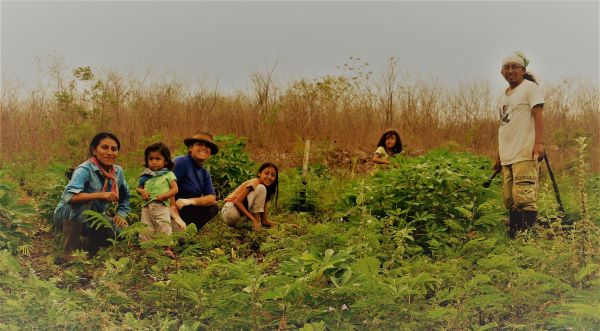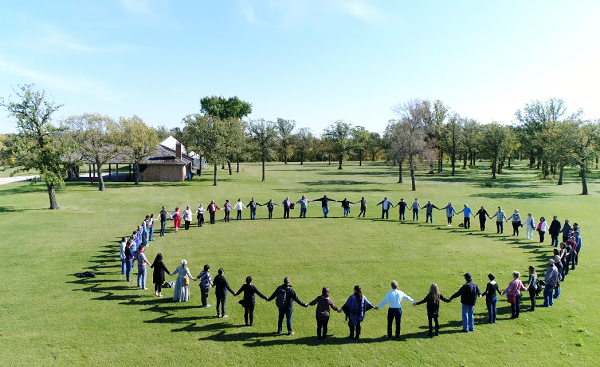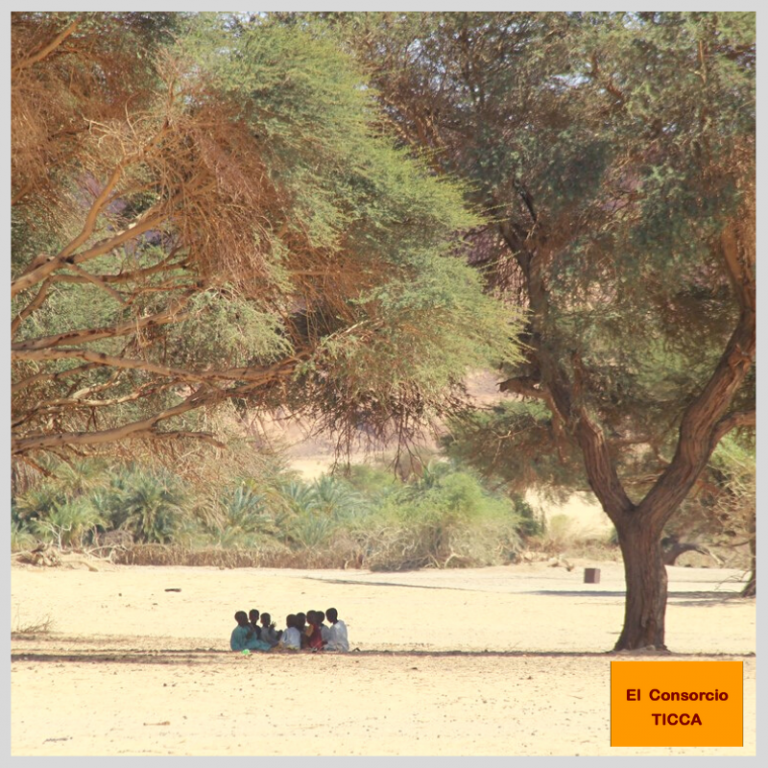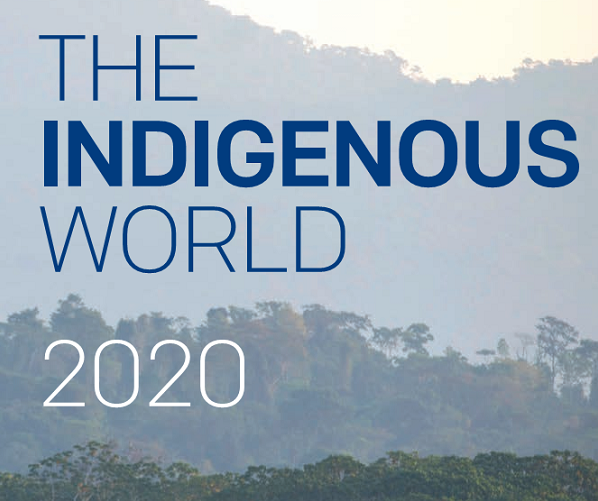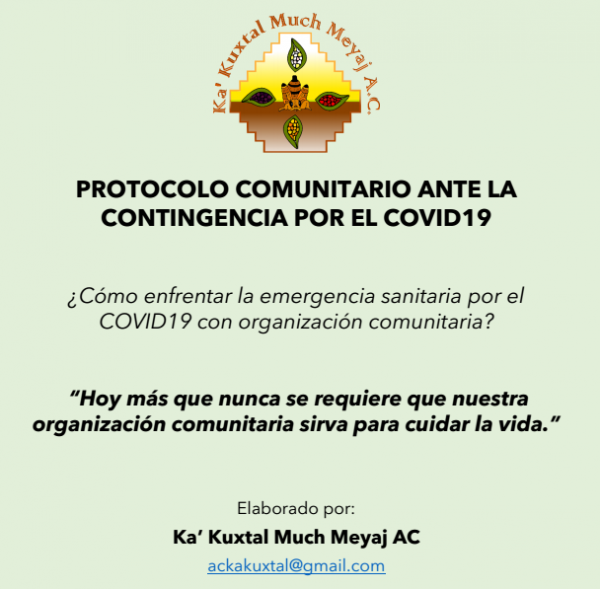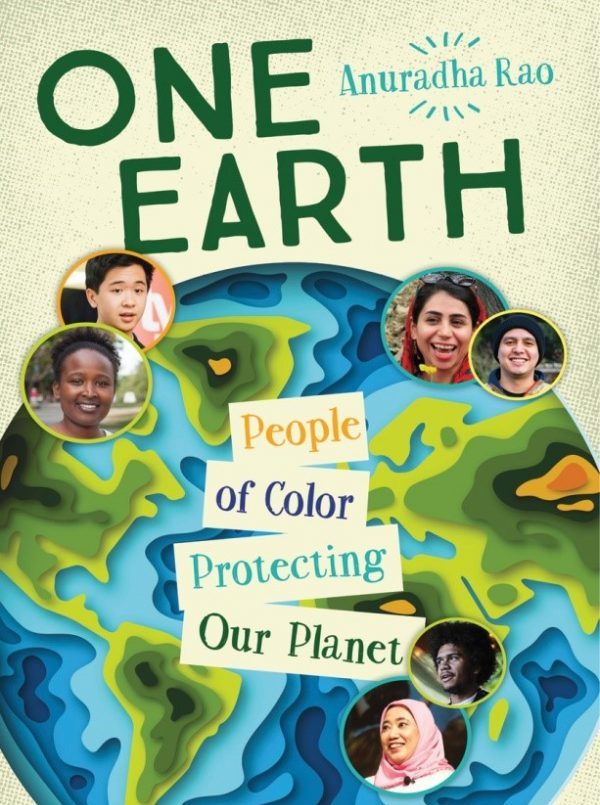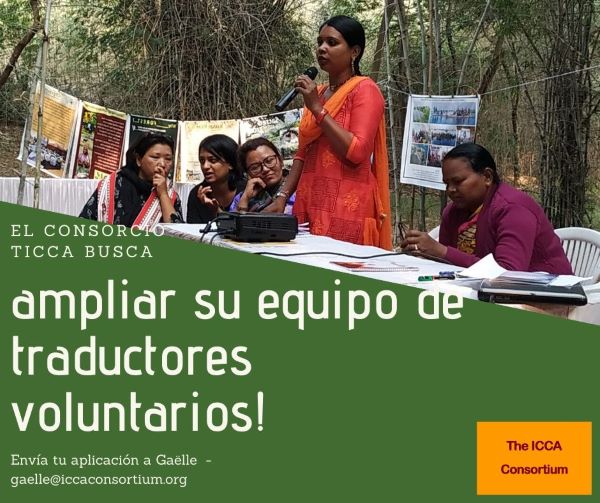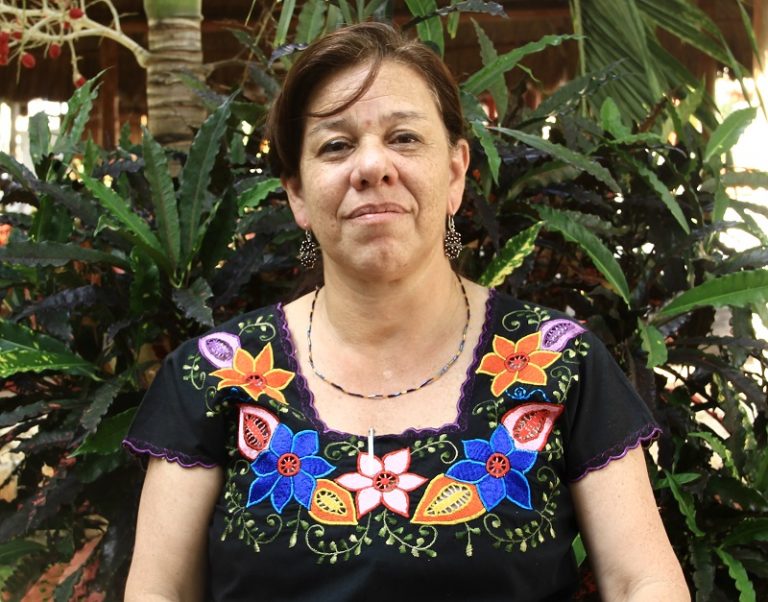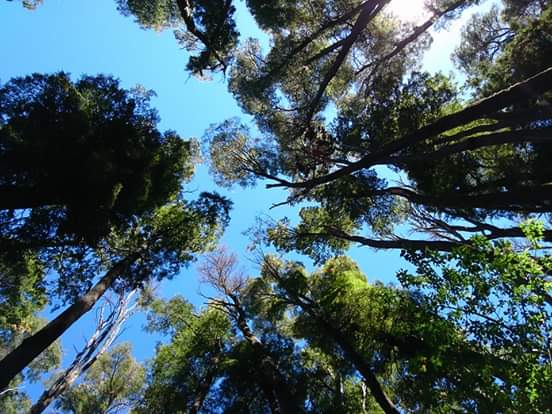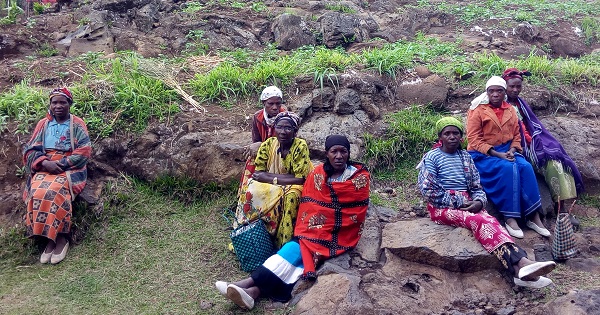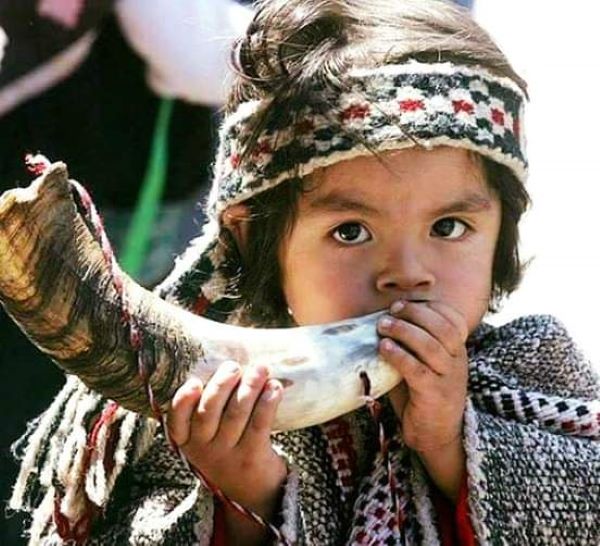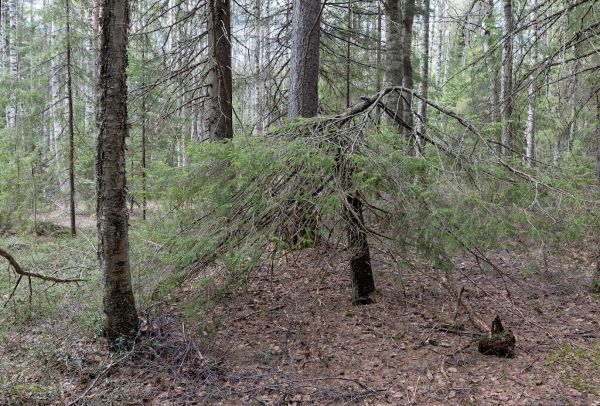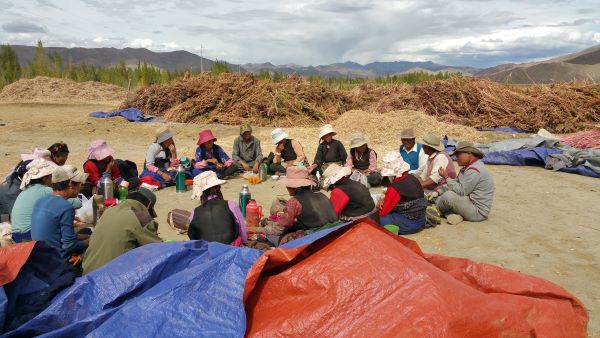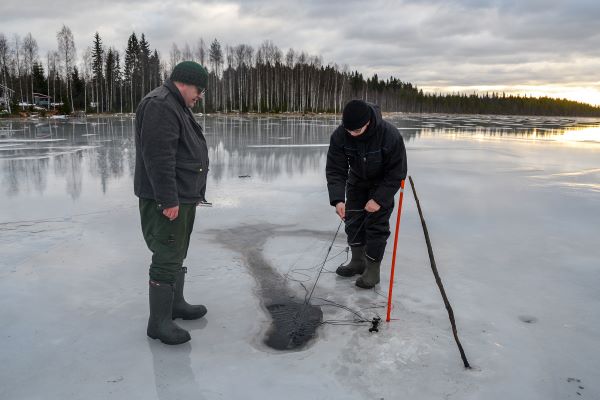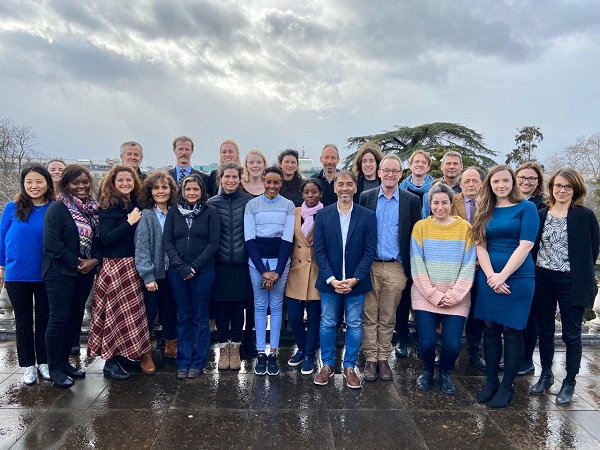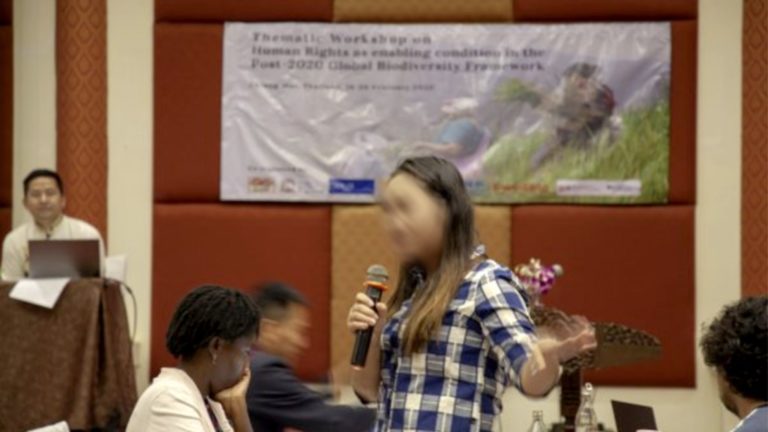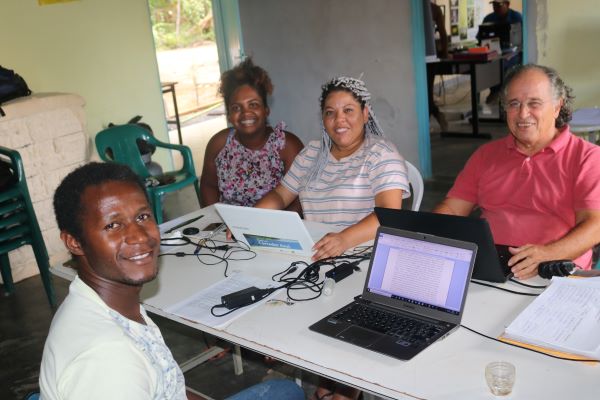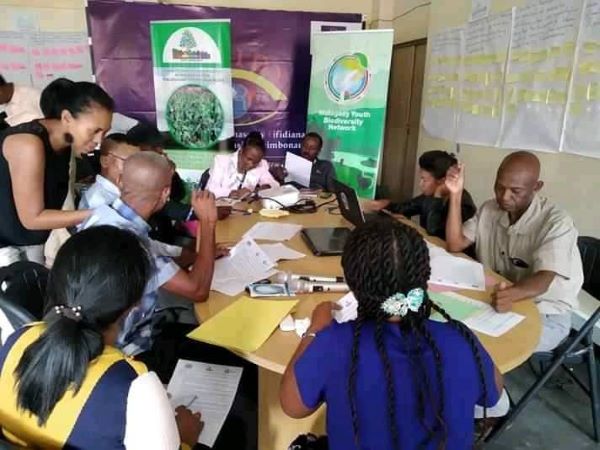
World
Desde los Territorios de Vida Mayas: Esta Pandemia Resalta Tanto Nuestras Carencias Como Nuestras Fortalezas y Estrategias
Albert Maurilio Chan Dzul, Coordinador del Consorcio TICCA para Mesoamérica y representante de U Yich Lu’um, A.C., comparte las reflexiones y estrategias de su organización frente a la pandemia actual, profundizando sobre resiliencia, relación espiritual con el territorio y salud mental. Read more ▸
Together We Rise! The Importance of Indigenous Protected and Conserved Areas in the Time of COVID-19
In Canada, the Conservation through Reconciliation Partnership held a virtual dialogue on the importance of Indigenous Protected and Conserved Areas in the time of the COVID-19 pandemic. With a message of great hope, Allison Bishop shares the group’s collective reflections about human relationships with nature and the opportunity that IPCAs represent to care for the natural world. Read more ▸
Global Calls for and on Territories of Life During the COVID-19 Crisis
The ICCA Consortium organised the first round of online discussions to bring together our membership in this difficult time, to strengthen solidarity, share experiences and responses from territories of life around the world, and jointly reflect on the ICCA Consortium’s role, both now and into the future. We shared inspiring stories as well as challenges, as we considered how the ICCA Consortium could play a role in confronting and affecting the dominant paradigms that led to the emergence of COVID-19. Read more ▸
The Indigenous World 2020 – by IWGIA
IWGIA recently published its report ‘The Indigenous World 2020’. An impressive 114 authors contributed to the report; Indigenous and non-indigenous activists and scholars from all over the world. The work surveys the main events to impact the lives of Indigenous communities in 2019. The book will stand as a go-to reference for all who wish to be informed and current on the rights of Indigenous peoples. Read more ▸
Protocolo Comunitario Ante la Contingencia por el COVID 19
Protocolo comunitario ante la contingencia por el COVID 19.¿Cómo enfrentar la emergencia sanitaria por el COVID19 con organización comunitaria?, por Ka’ Kuxtal Much Meyaj… Read more “Protocolo Comunitario Ante la Contingencia por el COVID 19” ▸
One Earth: People of Color Protecting Our Planet
One Earth profiles Black, Indigenous and People of Color who live and work as environmental defenders. Here, twenty short biographies introduce readers to diverse environmental defenders from around the world. Our dear Ghanimat Azhdari is among these young inspiring people interviewed by the author, Anuradha Rao, who describes the experience of writing this book and her meeting with Ghanimat. Read more ▸
Convocatoria a Traductores Voluntarios para Apoyar al Consorcio TICCA
La comunicación entre continentes, idiomas y culturas es parte de nuestra vida diaria en el Consorcio TICCA. A medida que nos esforzamos por seguir mejorando nuestra capacidad de compartir e intercambiar historias, experiencias e información con nuestros Miembros y socios, estamos creando un grupo de voluntarios para apoyar con la traducción. Read more ▸
Thanking Carolina Amaya for her Outstanding Work
We would like to warmly thank Carolina Amaya for her remarkable work as Spanish editor and translator for the ICCA Consortium, for which she has provided a dedicated and masterful hand for more than eight years. We wish her all the best and will remain in close contact as she focuses (even more!) on supporting ICCAs—territories of life in Colombia. Read more ▸
Cultivating seeds of change: Launching the ICCA Consortium’s “Youth for Territories of Life”
“Much like seeds pushing through the earth to grow into mighty cohiue trees, young people must continue to build ourselves, learn and grow into the strong agents of change that are so needed by our communities and territories and the planet as a whole.” An editorial by Josefa Cariño Tauli and Lucas Quintupuray, co-chairs of Youth for Territories of Life. Read more ▸
BIOSEC podcast on community conservation in Romania and Rwanda
Emerging biodiversity and wildlife policies may have the potential to change the same-old-same-old approaches of colonialist fortress conservation. Read more ▸
Recovering Ancestral Instruments: A Political and Philosophical-Spiritual Act
“When we play the instruments in ceremonies or celebrations, we demonstrate to the different energies that we know our origin and understand our role: we are defenders of life, of the territories, we are one more energy, we are part of the whole,” says Lucas Quintupuray, ICCA Consortium Council member. Read more ▸
Third ICCA Site Registered in Finland: GoldCrest Forest
“GoldCrest” is a small old-growth forest site of great importance to the local Selkie village that is now registered in the global ICCA Registry hosted by UNEP-WCMC. The forest had been under a threat of being clear cut, but thanks to the Landscape Rewilding Programme, it has now been spared. An article by Snowchange. Read more ▸
Inclusive Development, an Imperative for the Future: Building Broader Partnerships for Better Informed Decisions
There is ample evidence that more inclusive approaches to conservation and sustainable development lead to greater success, both in human and environmental terms. Five different ways to build, broaden and strengthen appropriate and genuine partnerships – including through recognising ICCAs–territories of life – are described in this article by Marc Foggin, representative of ICCA Consortium Member Plateau Perspectives. Read more ▸
Multimedia: Fishing for the future — Climate and young fishermen in Finland
The effects of climate change this winter have hit the fisheries across boreal Finland like never before. Our Member Snowchange rises to the challenge with a Master-Apprentice programme. In a beautiful multimedia piece, we learn how Snowchange is transmitting ancient skills and the preparation of traditional fish recipes to local young people. Read more ▸
ICCA Consortium Participates in the Elaboration of Geneva Road Map to Protect Defenders’ Fundamental Human Rights
Council member José Aylwin participated on behalf of the Consortium and its working group on defending territories of life, where he presented the perspective and work of the Consortium as well as the difficult context of environmental and land rights defenders in Latin America in particular. Read more ▸
“¡Somos La Red TICCA Colombia!” Trabajo en Red Para La Defensa De Los Territorios
Los miembros de la Red TICCA Colombia aprovecharon un fructuoso encuentro nacional para consolidar su trabajo en red y capacitarse colectivamente sobre el autorreconocimiento y la documentación de los TICCA. Read more ▸
UN Biodiversity Negotiators Must Protect Human Rights to Protect the Planet
ICCA Consortium Members, Honorary members and partners joined forces for an ambitious international workshop that could help change the course of the post-2020 global biodiversity framework – by putting human rights firmly at its centre. Read more ▸
The Kalunga Quilombo Community is the First in Brazil to Self-recognise their ICCA-Territory of Life
After an extensive participatory process, the community of Kalunga decided to register their territory of life in the global ICCA Registry hosted by UNEP-WCMC. Our Member MUPAN, who accompanied the Kalunga community, describes this process. Read more ▸
Local Communities and Youth Express Their Views on the New Post-2020 Global Biodiversity Framework, Toward a Shared Vision of Biodiversity in Madagascar
In Madagascar, our Member TAFO MIHAAVO and Malagasy Youth Biodiversity Network have united to gather Fokonolona and youth to analyse the current biodiversity governance and management in the island, and to shape a common future to preserve biodiversity. Read more ▸

